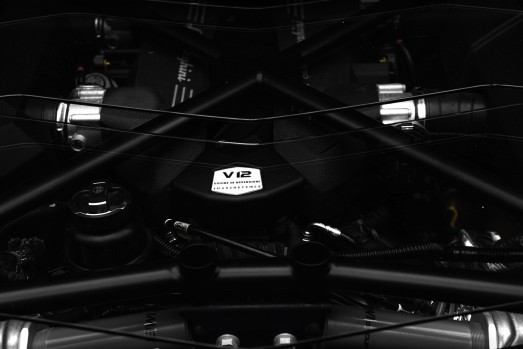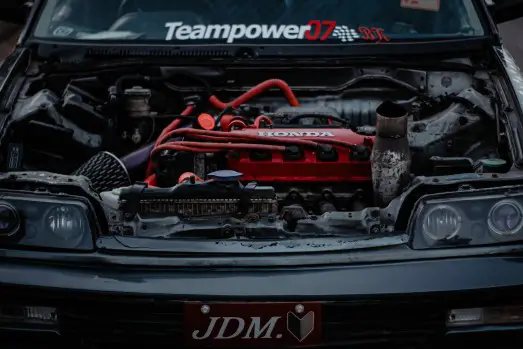An automobile’s engine is its heart, and among BMW fans, the N52 engine has a particular position in the lineup. The N52 introduced a combination of economy, performance, and technological innovation to BMW automobiles when it made its debut in the mid-2000s. But as with any technical wonder, dependability becomes crucial, leading aficionados and potential purchasers to research the engine’s history.
Technical Overview of the BMW N52 Engine:
Within the automobile industry, the BMW N52 engine is a monument to inventive design and precise engineering. The N52, which debuted in the middle of the 2000s, permanently altered BMW’s reputation as a manufacturer of high-performance engines. Below is a detailed summary of the BMW N52 engine, emphasizing its main attributes and specifications:
Engine Specifications and Design:
- Displacement, Bore, and Stroke:
- With a 3.0-liter displacement, the N52 engine is available in both inline-six and inline-four-cylinder configurations.
- The engine’s ability to balance power and efficiency is influenced by the bore and stroke size.

- Valvetrain and Double-VANOS Technologies:
- Valvetrain: The conventional throttle is replaced by BMW’s Valvetrain technology, which modifies valve lift to maximize engine economy and power delivery.
- Double-VANOS: By varying the timing of the intake and exhaust camshafts, this variable valve timing system improves torque, horsepower, and fuel economy.
- Materials Used in Construction:
- The aluminum alloy structure of the N52 engine balances weight and strength for maximum performance.
- Fuel economy and engine response are enhanced by lightweight parts.
Performance Characteristics:
- Power Output:
- N52 engines range in horsepower from about 200 to 272, depending on the model and tune, and offer a powerful blend of smoothness and power.
- Notable torque numbers offer strong low-end power and a pleasurable driving experience at all revs.
- Fuel Efficiency:
- Fuel efficiency is improved by efficient combustion, facilitated by valvetrain technology and accurate fuel injection.
- The N52 exhibits a good balance between power and fuel efficiency despite its performance potential.
- Notable Features Contributing to Performance:
- An innovative engine management system ensures precise control over fuel injection, ignition timing, and other crucial factors.
- The N52 engine is suitable for a range of BMW models because of its linear and smooth power delivery, which also improves driving comfort and performance.

Common Reliability Concerns:
Although the BMW N52 engine has received praise for its effectiveness and performance, it is not without the usual reliability issues, as is the case with any complicated equipment. Numerous problems that have emerged as recurring themes have been brought up by owners and fans. Here, we list some of the typical issues with the BMW N52 engine’s dependability:
High-Pressure Fuel Pump Failures:
- Issue Overview:
- There have been reports of high-pressure fuel pump failures that have impacted engine performance and fuel delivery.
- Rough idling, engine misfires, or even stalling are symptoms.
- Potential Impact:
- Problems with the high-pressure fuel pump can cause driving difficulties and, in extreme situations, engine damage.
Valve Cover Gasket Leaks:
- Issue Overview:
- Oil seepage around the valve cover region is a typical hazard caused by breaches in the gasket surrounding the valve cover.
- Owners could smell burning oil or see oil stains on the floor.
- Potential Impact:
- Even while they frequently do not pose an immediate risk to engine performance, valve cover gasket leaks can cause oil loss and, if ignored, might develop into more serious problems.
Water Pump and Thermostat Issues:
- Issue Overview:
- There have been reports of thermostat and water pump problems, which have affected the engine’s cooling system.
- These problems might be indicated by warning lights, coolant leakage, or overheating.
- Potential Impact:
- If cooling system issues are not quickly resolved, engine overheating might result in severe damage.
Timing Chain and Guide Problems:
- Issue Overview:
- There have been reports of wear on the timing chain and guides, which might cause rattling sounds and, in severe situations, engine damage.
- Frequent maintenance is essential to resolving this issue.
- Potential Impact:
- Engine misalignment caused by timing chain problems can impair overall performance and dependability.

Factors Influencing Reliability:
Numerous variables affect the BMW N52 engine’s dependability, including driving behaviors, environmental circumstances, and routine maintenance procedures. Gaining knowledge of these elements enables owners to make improvements to the engine’s performance and lifetime. The following are crucial factors that affect the N52 engine’s dependability:
Regular Maintenance and Service Practices:
- Recommended Service Intervals:
- It is crucial to follow BMW’s suggested servicing intervals. The best engine performance is a result of routine maintenance procedures like oil changes and filter replacements.
- Importance of Oil Changes and Fluid Checks:
- The N52 engine, like any other, relies on clean and sufficient oil for lubrication. Regular oil changes help prevent premature wear and reduce the risk of issues such as timing chain wear.
Driving Habits and Conditions:
- Effect of Aggressive Driving on Engine Wear:
- Fast acceleration and high-speed driving are examples of aggressive driving that can put more wear and strain on engine parts. Longevity is enhanced by driving in a balanced manner.
- Impact of Environmental Factors:
- Temperature and humidity are two environmental factors that might impact engine performance. Certain components, such as seals and gaskets, may have a shorter lifespan due to extreme temperatures or continuous exposure to severe environments.
Quality of Fuel and Engine Care Products:
- Fuel Quality:
- For the best engine performance and combustion, premium gasoline must be used. Carbon buildup from low-quality fuel can damage fuel injectors and other parts.
- Fuel Additives and Engine Cleaners:
- Using engine cleaners and gasoline additives regularly may help keep the fuel system clean and lower the likelihood of problems like carbon deposits or clogged injectors.
Proactive Monitoring and Early Issue Address:
- Regular Inspections:
- Regular inspections by qualified technicians can assist in spotting potential problems before they become more serious. This entails looking for wear indicators such as leaks and strange sounds.
- Prompt Repairs:
- It is possible to stop minor problems from growing into bigger, more expensive ones by taking quick action, whether the problems are found through routine inspections or by keeping an eye out for warning signs.

Mitigation and Solutions:
The long-term viability of the BMW N52 engine depends on reducing typical reliability issues and putting workable fixes in place. Even while certain problems might always exist, taking preventative action can lessen the chance and impact of future troubles. The following are important mitigating tactics and remedies:
Upgraded Parts and Aftermarket Solutions:
- High-Pressure Fuel Pump Upgrades:
- Fuel delivery can be improved, and the likelihood of fuel pump failures reduced by upgrading to a more durable high-pressure fuel pump.
- Reliability can be enhanced by aftermarket solutions made to fix certain flaws in the original components.
- Improved Timing Chain Components:
- Timing chain wear may be minimized by upgrading timing chain parts like tensioners and guides.
- When compared to factory parts, aftermarket kits could offer stronger and more resilient components.
Best Practices for Owners:
- Proactive Maintenance Tips:
- It is essential to follow a rigorous maintenance program that includes frequent coolant flushes, filter replacements, and oil changes.
- It might be helpful to spot problems early by routinely checking the engine for leaks, strange noises, and other wear indicators.
- Monitoring and Addressing Potential Issues Early:
- Owners must be aware of warning indicators like rough idling, engine misfires, or strange noises, and they ought to investigate and take care of any anomalies right away.
- Frequent diagnostic scans can assist in locating any problems and resolving them before they get worse.
Manufacturer Updates and Recalls:
- Stay Informed About Recalls:
- Recalls and technical service bulletins about the N52 engine should be kept up to date so that owners may benefit from any modifications or enhancements provided by the manufacturer.
- Recalls that are immediately addressed might help avoid problems that would have been discovered after the car was first released.
- Consulting with BMW Experts:
- Consulting with BMW experts and mechanics might yield insightful information about typical problems and workable fixes.
- Using the knowledge of those acquainted with the N52 engine might help promote a proactive and knowledgeable maintenance strategy.
Comprehensive Inspections:
- Preventive Inspections:
- Regular thorough checks help identify foreseeable problems before they worsen, especially as the car matures.
- This includes checking important parts including the thermostat, water pump, and valve cover gasket.
- Diagnostic Tools and Scans:
- When doing normal maintenance, it might be helpful to uncover electrical and sensor-related problems that might not be immediately obvious by using advanced diagnostic tools and software.
Frequently Asked Questions (FAQs):
How come the N52 is so good?
The N52 engine is widely recognized for its exceptional performance, which is ascribed to its creative architecture, sophisticated materials, state-of-the-art technology, flexibility, extensive testing, and dedication to ongoing enhancement.
Which BMW motors are the most dependable?
BMW’s most trustworthy engines include the N52, N55, B58, M54, and M20; these engines are renowned for their dependability and balance of performance.
Is the N52 engine superior or the M54?
Because of its increased performance and efficiency, the N52 is usually regarded as being better than the M54, although the M54 is valued for its dependability and longevity.
How fast can the N52 go?
Model-specific variations in peak speed for a car with an N52 engine often occur between 130 and 155 mph, depending on the car’s setup and the presence of speed limiters.
Conclusion:
To sum up, the NG2 engine is proof of the highest level of dependability and technical advancement in propulsion systems. Its history, which is characterized by detailed design and the use of innovative technology, paves the way for a powerhouse that surpasses expectations in the industry. The importance of engine dependability, which is highlighted in the automotive, aerospace, and different industrial sectors, places the NG2 in the forefront of guaranteeing not just performance but also safety and financial feasibility.

